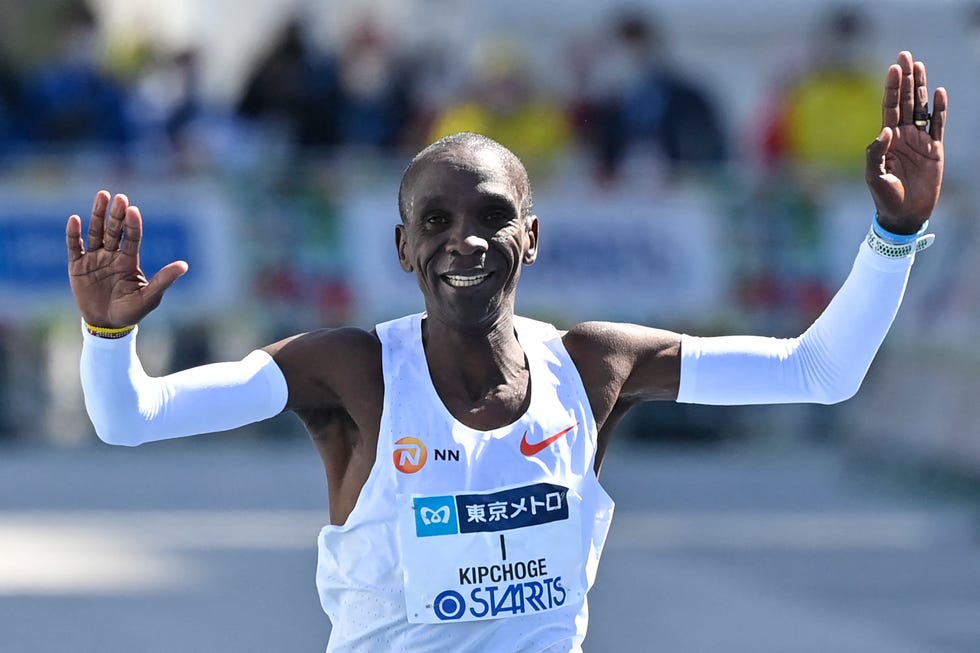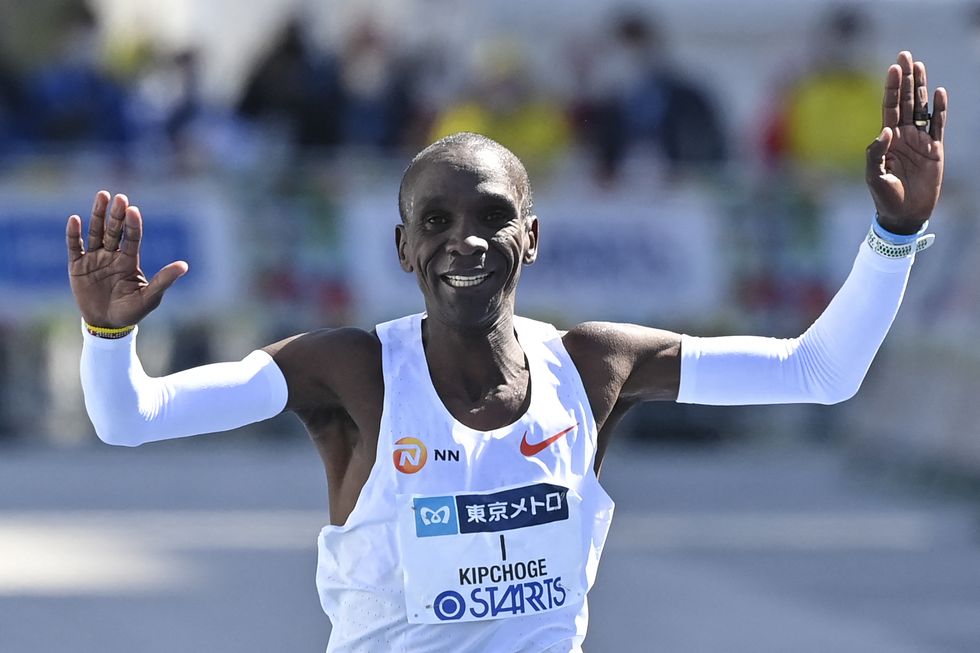
Mark Lewis is a YouTuber who describes himself as an average runner who is “not too bad” at any distance, and has run everything from 5Ks to ultra-marathons. In a recent video, he sets himself the challenge of learning from the performance of one of the all-time greats in the sport of distance running: Olympic gold medalist and record-breaking marathoner Eliud Kipchoge.
“As an OK runner, I thought this would be interesting,” he says. “Because one of the cool things about being OK at something is it allows you a better understanding of just how good the really good people are.”
Kipchoge won the Tokyo Marathon in 2:02:40 this week. He previously set the current world record for the fastest marathon ever, during the Berlin Marathon in 2018 with a time of 2:01:39. He has since improved on that, completing the INEOS marathon in Viena, Austria in 1:59:40, but that achievement was not counted as an official world record as the INEOS was an event designed with the specific goal of beating the 2-hour mark, rather than an open competition, and Kipchoge had a team of pacemakers accompanying him on the 26.2-mile course.
“It’s a 2 minute 54 per km pace for 42 km; stupidly quick,” says Lewis. “I can’t comprehend what he’s doing, not properly.”
Lewis sets himself the challenge of trying to achieve that 2:54 pace. He starts out by running on a treadmill at the pace he was originally able to keep when he first started doing 5Ks (a “fast walk” of 8 minutes per km), and from there he increases the speed in gradual increments. First he ups it to a 6-minute km, which is a comfortable speed at which to jog consistently, then up to a more intense pace of 4:37 which he calls “properly running now.”
From this point on, even small increases begin to make a noticeable difference, and by the time Lewis is running a 4-minute km he is feeling the intensity. “Most people aren’t running this fast for long,” he says. As he gets closer to Kipchoge’s historic pace he struggles more and more, calling a 3-minute km “simply not a sustainable pace for any length of time” and saying that his legs feel heavy after running at that speed for just one minute.
“Falling over is becoming a distinct possibility,” he says, before reaching failure at two minutes. “Two hours at that speed is just beyond what I can grasp. Even doing it for 15 minutes is mind-boggling for a 5K… I have zero understanding how a human being can move that quick, that long.”
This content is created and maintained by a third party, and imported onto this page to help users provide their email addresses. You may be able to find more information about this and similar content at piano.io
